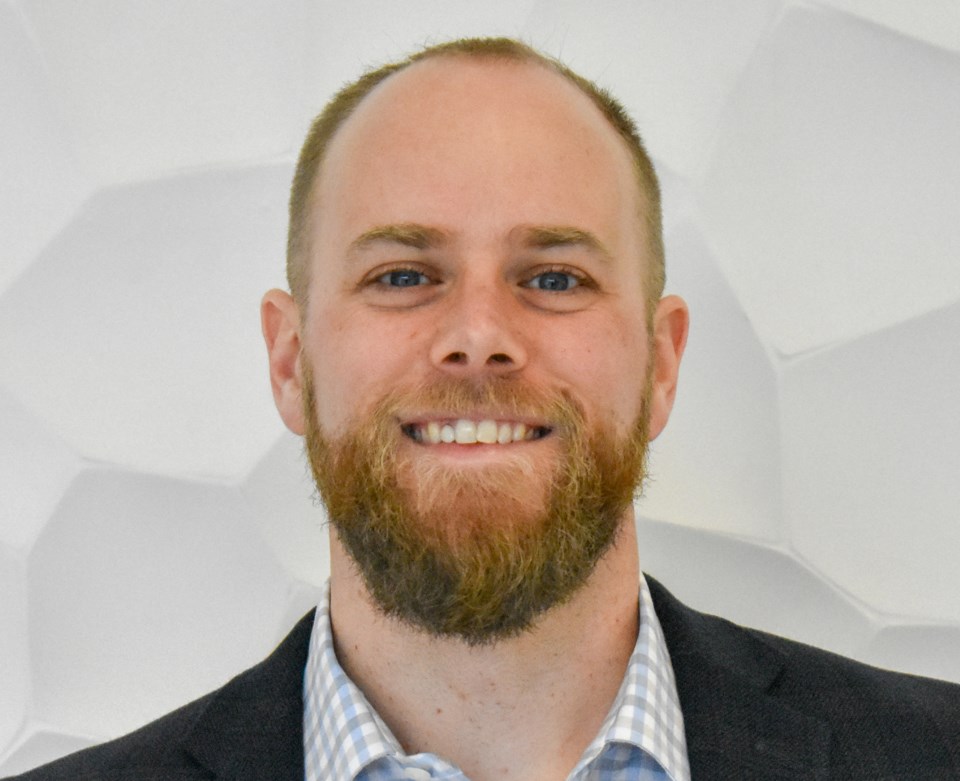In their own words, candidates tell us a little bit about themselves and where they stand on the issues. A different ward will be featured each evening this week.
Name: Luc Cousineau
Occupation: Sessional instructor, University of Waterloo / Postdoctoral Fellow, International Network on Technology, Work, and Family, UQAM
How long have you lived in Guelph? I was born here. Moved away for a few years after high school, then returned 10 years ago.
Do you reside in the ward you are running in? Yes, I do.
Why are you running in this election? I think that community governance is really important and I feel like I have something to contribute. I believe that my background in social justice and equity research puts me in a good place be a strong voice on council for these issues and to build a better Guelph.
What qualifies you to represent your ward? I’ve lived in ward 3 for 10 years and understand that it is a very diverse section of the city. I have the capacity to advocate for those various needs while working to build a better Guelph.
Why should people vote for you? I’m a social scientist that believes in government’s obligation to do its best for all inhabitants, and that uses the best available information and science to do so. To do that, you need someone on council who can understand the science. I can.
What do you see as the main issues facing residents of the ward? We have diverse needs in Ward 3. Because our neighbourhoods are so different from one another, to highlight the needs of a single neighbourhood would be a disservice to others. However, items like the LaFarge Lands development project, as well as reliable, safe, and efficient movement infrastructure (especially transit, cycling, and pedestrian) are essential for Ward 3.
What do you see as the main issues facing residents of Guelph on a broader scale? In my view, our main issues in Guelph revolve around three items: moving people – so road, cycling, pedestrian, and transit infrastructure and policy; housing people – so density, development, and sprawl policy, including urban infill; and feeding people – everyone in Guelph should have suitable and easy access to high quality food through grocery stores (looking at you east end) and more municipally-supported community garden infrastructure.
What is the most important thing you want to see changed in Guelph? Better and easier access to mental healthcare. Guelph could turn itself into a leader in community-based access to mental healthcare, but we need the political will to do so.
What services need to be improved in Guelph? Equity in repair and replacement is something that the city needs to continue to work on. Drew Park in Ward 3 is a great example. It is long overdue for replacement (it has a metal slide) but has to wait until at least 2023. As a resident of this part of ward 3, it is challenging to see huge amounts of money invested in other recreational infrastructure in the city, and this neighbourhood so low on the list.
Is Guelph growing too fast, just the right amount, or not fast enough? The speed of growth is far less important than how we are handling that growth. Do we have robust plans for how we will move, house, and feed our new Guelphites? Not every new resident of Guelph is in a position to purchase a single-family home, and many may not want to. What are we doing to support a reasonable and affordable housing market (including and especially rental housing)? What about density? What about access to food? Speed of growth is asking the wrong question.
What can be done at the local level about the rising cost of housing? Guelph, and other fast-growing municipalities, need to do a better job of leveraging the power we have to protect residents. Lets use the powers that we have to push back on uncontrolled development and provincial singular focus on building without supports. Part of this is revisiting municipal policy on urban infill and other density measures, as recently occurred in zoning changes.
What can be done locally about the homelessness issue? Give people homes. The answer here is both simple and complicated. Simply giving people homes, and we can do so if we find the humanity and political will to do it, can solve much of what we call the “homelessness issue”. A more complicated (and important) discussion is what the “homelessness issue” involves. This is a broad social systems, policies, humanity, and personal issue. There are solutions, but we need to find the humanity and desire to actually engage with them.
How do we make Guelph an even better city to live in? Rainbow crosswalks…in every ward.
Any link to an election website or social media account?
